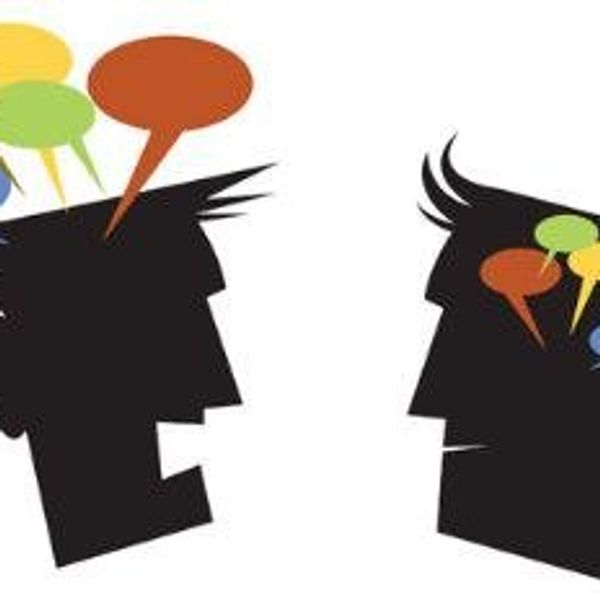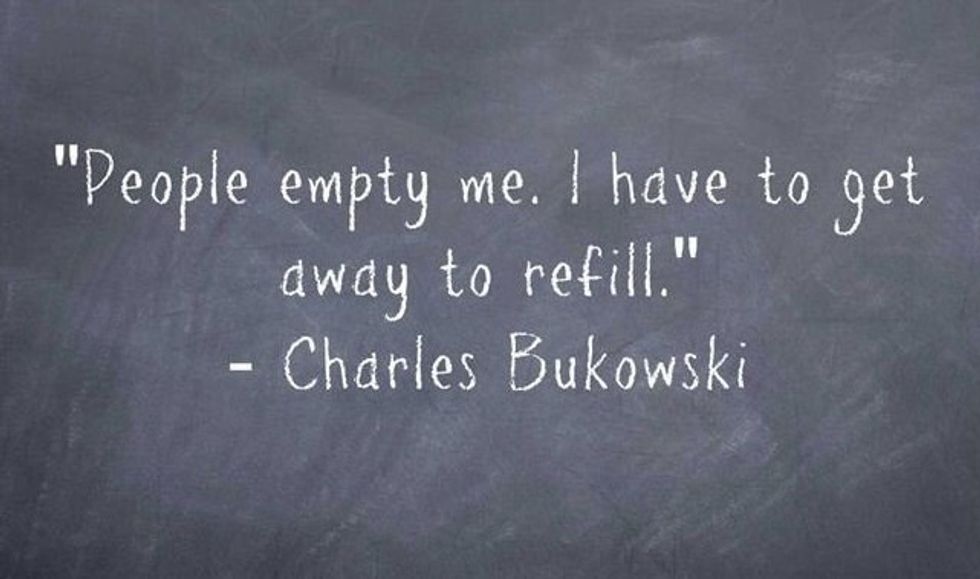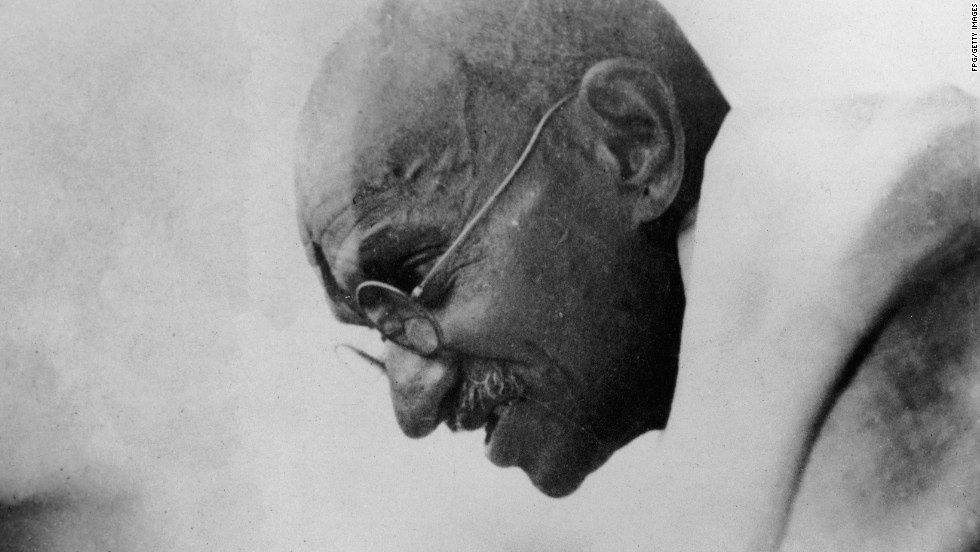“I like her, but she’s kind of quiet…”
Every time I heard anything like it, a sting ran through my core. I thought I did such a great job at that party, too. I was proud of myself for staying for so long and talking to so many people. Was it because I didn’t want to do a keg stand? Is that why they think I’m quiet?
“There must be something wrong with me.” And thus began the vicious cycle of being more quiet because I was so paranoid about being quiet.
It took my entire college experience and then some to realize that there is absolutely nothing wrong with me. It took years to take pride in my introversion.
College is a scary time, especially for those more reserved, soft natured and introverted like myself. You’re suddenly thrown into a world that appears to be designed for extroverts: teachers that grade for verbal participation, workplaces set up for maximum group interaction, a university environment that prides itself on social opportunity through fraternities and sororities. Susan Cain refers to it as a culture of character, rather than a culture of personality -- everyone needs to prove themselves through a cultural admiration for extroversion.
The worst part is that nobody really seems to get it.
Introversion vs. extroversion goes far beyond just shyness vs. loudness. In fact, some introverts can be social and outspoken, while some extroverts can be shy and reserved. No person is exclusively one or the other, though we each identify toward a certain point on the spectrum. To be introverted simply means you prefer lower-stimulating environments, while extroverts crave stimulation to feel their best. For example, while an extrovert may thrive at a large event or party, drinking wine with a few close friends may sound far more appealing to an introvert.
Through my experience transitioning into a world that seems to prefer extroverted qualities, I’ve simultaneously basked in my introversion and grown as a social individual. That’s all any of us can do. Introverts, college is a time for more personal growth than any other experience you’ve had thus far. And quite honestly, perhaps we introverts grow more than extroverts as we are thrown outside of our comfort zone so very often in the college environment. Seize it as a learning experience to take by storm, rather than an intimidating transition through which you’d rather hide away in your room (you’ll have plenty of time for that, too).
Remember, you play an important role in the world, too.
You have a purpose. If quiet is what you need to bring that purpose to light, then by all means, find quiet. Creativity, inspiration, and clarity thrive within solitude. You can look toward several religious figures as examples of this. Muhammed, Jesus, Moses and Buddha all went into the wilderness to have their epiphanies in peace, then brought them back to the rest of the community.
The crucial part of this point, however, is collaboration. The role that you play in the world must be brought to the world. There are several other introverts in history whose names you probably know: Albert Einstein, Bill Gates, Eleanor Roosevelt, Abraham Lincoln, Ghandi. All of these people identified themselves as more soft-spoken and introverted by nature, but they took the spotlight even though every bone in their bodies told them not to. Through them, the world changed and thrived, not because they craved attention, but because they were driven for a greater purpose and passion that introverts can hold just as much, if not more so, than extroverts.
You may not speak often, but when you do speak, it’s of value.
The greatest compliment I ever received from my boyfriend, who oddly enough is the biggest extrovert I’ve ever met, was this: “You don’t always speak, but when you do, it’s thoughtful and intelligent.” This compliment is one of few that has touched me so genuinely.
I know I’m not the only one. Introverts have a way of being more insightful and self-reflective within their comfortable, low-stimulating environments -- more time for reading and writing. Alternatively, within high-stimulating social environments, they are more observant than participatory. They see and they understand. They listen more than they talk. After all, we have two ears and one mouth for a reason.
So, introverts, you may not speak as often, but when they do, there is substance within what you say. Your ability to listen and empathize does not go unnoticed. My advice to you is, when you do speak, speak loudly. The world appreciates all you have to say.
So, step outside your comfort zone.
Small steps lead to leaps and bounds. Find yourself opportunities to go out and try new things, meet new people, and grow as a social individual. Go to a party for an hour. Worst comes to worst, it’s lame and you go home. Better yet, you meet a few of your friends there and go on your own little adventure later in the night.
The best memories I had during my college experience were the times I did not see coming, the evenings I didn’t plan out, with people I didn’t plan to meet. Introverts, there are so many people out and about just like you, and so many who are different. By spending time with people who are different than you, you blossom in ways you wouldn’t have otherwise. So go out, participate and collaborate.
But, take care of yourself.
If you don’t feel like going out on a particular evening, then don’t. Anyone and everyone is entitled to time to themselves. Some crave it more than others, but everyone needs it. Self-care will become more important in college than you experienced in high school or before. As you become more independent and take on more responsibilities, you have to give yourself what you need to re-energize.
If going to a party is your way of thriving, then go. If hiding away in your bed watching Netflix all day is your way of re-energizing, then hide away. If going on a hike by yourself is your way of clearing your head, then go do it. As you recognize your own capabilities, you must recognize the aid you need as well.
To be introverted is nothing to be ashamed of. There is beauty, wisdom and grace that come with silence. The world needs you and your voice, and college is the best time to experiment with your social capabilities.


























